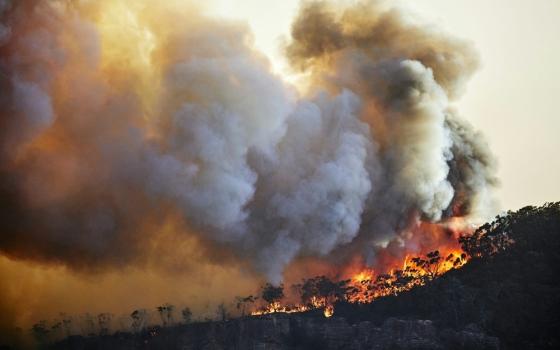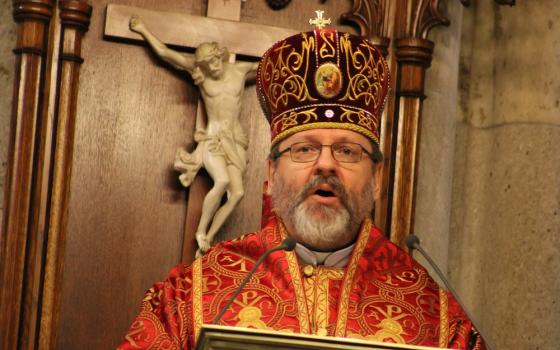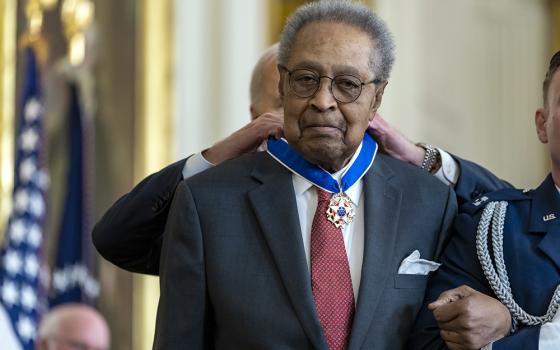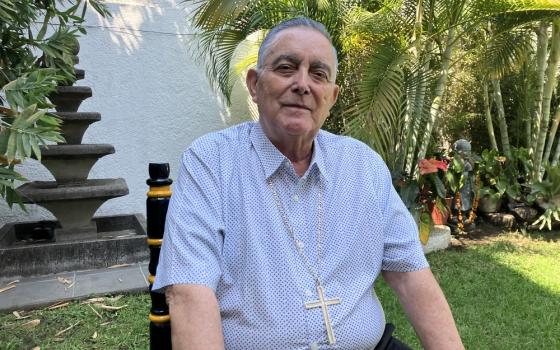President Donald Trump began his first foreign trip as president in Saudi Arabia this weekend. Given the royal welcome he received, maybe he will want to stay there as the investigation into his campaign's dealings with Russia heat up back in Washington: The long knives drawn in Riyadh were part of a ceremonial dance, while the ones back home are for real.
Three things stood out about this first leg of his trip. First, the administration is "all in" with the Saudi kingdom, which should not be a surprise seeing as America's chief diplomat, Secretary of State Rex Tillerson, is a former CEO of Exxon Mobil. But it is difficult to denounce extremism within Islam while getting into bed with the regime that has spread, and continues to spread, the Wahhabi interpretation of Islam throughout the Muslim world, funding madrasas that teach what is an extremist interpretation of Islam.
The president, in his major speech, promised to steer clear of any local interference: So long as you support the U.S. campaign against terrorism, the new administration won't object to how you run your country: "We are not here to lecture — we are not here to tell other people how to live, what to do, who to be, or how to worship," the president said. "Instead, we are here to offer partnership — based on shared interests and values — to pursue a better future for us all." He did not explain why it is alright for the Saudi regime to behead its opponents while the same act, when perpetrated by ISIS, is barbarity.
President Trump's objective here is obvious: No one will mistake him for Woodrow Wilson, or for that matter, for Barack Obama. Realpolitik is back. I suppose that is better than the only available alternative in this White House: a Steve Bannon-directed, Samuel Huntington-inspired ideological war between Islam and the West. Still, at the heart of America's self-identity are some core propositions about the human person, that we enjoy a God-given right to life, liberty and the pursuit of happiness, and if those propositions are not universal, they are both untrue and unpersuasive.
The limits of the realpolitik vision were on display in the rest of the speech, in which the president most definitely told "other people," namely the Muslim leaders gathered in Riyadh, what to do: They need to join the fight against terror and "Islamist extremism." This last phrase is, you will note, different from what he said on the campaign trail, which is the second item of note about this trip. The phrase "radical Islamic terror" has become a kind of watchword among conservative zealots. On Fox News, they charged President Obama repeatedly with being unable to confront the threat because he would not name it, as if nomenclature was what kept Obama from taking more aggressive action in Syria. Now, when Trump is responsible for governance and not just sloganeering, he declines the formulation that had become such a badge of inverted seriousness among his conservative base.
No one should be shocked that politicians are capable of inconsistency. Our country made an alliance with the second greatest ogre of the 20th century in order to defeat the first. People do grow, mature, and even change their minds. What will be interesting to see now is if Trump reverts back to his conservative mantras when he returns home. Already, he was attacked on this trip by one of his biggest supporters, Roger Stone, who said that the picture of Trump bowing to the Saudi King to receive the "Collar of Abdulaziz al-Saud" "makes me want to puke." I suspect that many among Trump's base will have a similar reaction. They actually believed Fox News when it was attacking Obama for being weak on terror because he declined to use inflammatory words that, in the event, were not particularly accurate either.
The third thing about Trump's sojourn in Saudi Arabia was the arms deal he clinched and the frequent number of times he mentioned it. The deal is one of the largest in history: $110 billion. Trump touted the jobs it would create in America and the increased security it would provide Saudi Arabia. It has been a long time since Saudi Arabia has been attacked, but with Iran seeking to increase its reach in the region, Saudi fears are understandable. Still, the war they are fighting in Yemen has been marked by attacks on civilian populations, and the Israelis are none too keen on the arms' deal.
This is of obvious significance as he prepares to meet Pope Francis, who has repeatedly condemned the arms trade. If the Holy Father is of a mind to challenge the pope on this topic, he might remind the president that the U.S. once gave weapons to the "freedom fighters" in Afghanistan in the 1980s because they were fighting the Soviets. Yesterday's "freedom fighters" are today's Taliban, and now they are fighting us. It is naïve to think conflicts would stop if the arms industry were curtailed, but there is something chilling about the prospect of the creation of U.S. jobs taking precedent over reducing armed conflict throughout the world, and the cheerful way the president explained it. This is what "America First" looks like in action.
So, the verdict on Trump's first visit to a foreign country is mixed, and the trip continues today in Israel. He certainly did better than his Twitter rants, and his major speech was better than it could have been. The bar is pretty low here, of course. Still, I am glad he cleared it.
[Michael Sean Winters covers the nexus of religion and politics for NCR.]








